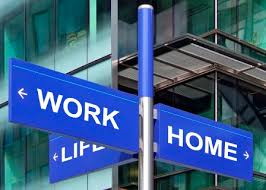 There’s so much Father’s Day goodness out there today I don’t know where to start.
There’s so much Father’s Day goodness out there today I don’t know where to start.
Former NYTimes blogger Marci Alboher asks “Are Dads the New Moms?” over at her new Yahoo blog, Working the New Economy.
Lisa Belkin conducts a two part interview with The Daddy Shift: How Stay-at-Home Dads, Breadwinning Moms, and Shared ParentingAreTransforming the American Family author and Daddy Dialectic blogger Jeremy Adam Smith
Michelle Goldberg of ABCNews.com tells us What Laid-Off Dads Want
And I offer “Findings from from the Layoff Lab”— a Father’s Day assessment of recession-era dads — over at The Big Money!Â
You can bet we’ll touch on many of these themes — and more, and from a fresh and feminist perspective — at the Brooklyn Museum tomorrow when the WomenGirlsLadies talk about “Dads, Dudes, and Doing It.” Event is free! We’ll be giving books away! I’ll be wearing straight-up maternity wear! This is one you won’t want to miss 🙂
PS. Time Out New York just listed us as one of the “Ten Best Father’s Day events” in town!

 A simply-must-read over at American Prospect,
A simply-must-read over at American Prospect,  My latest, up at Recessionwire.com
My latest, up at Recessionwire.com Can someone puh-lease get all the Wall Street
Can someone puh-lease get all the Wall Street  My latest post at
My latest post at  I’m THRILLED to announce that my nationally touring (whohoo!) intergenerational panel, “Women, Girls, and Ladies” will be
I’m THRILLED to announce that my nationally touring (whohoo!) intergenerational panel, “Women, Girls, and Ladies” will be  My latest
My latest  Well,
Well, 